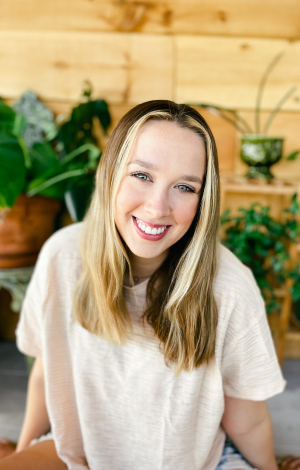My adoptive mother is a second-generation adoptee. Her biological mother, the woman who raised her, was adopted as an infant. I even had the opportunity to interview her for Adoption.com.
I have heard a lot about the way my adoptive mother was raised over the years. Her father was a preacher, and her mother was a stay-at-home mom. Before her dad was a preacher, he was in the Air Force. Their family moved all over the world when she was a child. She was born and raised in Spain and had the opportunity to travel all over Europe in her childhood. When they moved to the USA, they bounced all over the states (Oklahoma, Florida, Ohio, Texas, and Michigan).
Her father was extremely overprotective, her mother was relaxed and easygoing. One thing my adoptive mother expressed to me about her childhood was that her mother constantly tried to protect her from rejection. She encouraged her not to put herself out there, date, or make new friends at the risk that someone might reject her. My mother could never understand this until years later she made friends with another adoptee.
That adoptee introduced her to a prominent book about adoptees and their trauma. This was my adoptive mother’s first introduction to the idea that a baby being removed from their biological mother could be a traumatic experience.
My adoptive mom tried to explain this to her mother, but she was skeptical. My adoptive mother quickly connected the dots about her childhood. Her mother was the most terrified of being rejected because deep down in her heart she had felt rejected as an infant when her birth family placed her for adoption.
I am only about 6 years into motherhood myself, but I quickly noticed the same pattern my grandmother had in my own motherhood. I desperately wanted to shield my children from any and all rejection—even the simplest of things like someone not “liking” a photo of them on social media. As soon as I saw this pattern develop, I decided to be proactive and stop it. I read The Primal Wound and listened to so many podcasts about adoption. I read studies and talked to other adoptees, birth moms, and adoptive parents. I learned a lot from others who had gone before me, and for that I am so thankful. My parenting has only improved because of it!
As a child who was adopted, I was teased a lot. Insensitive questions like “Who are your real parents” or “Where are you really from?” were asked a lot. I knew because of these experiences, I wanted to equip my young children with the proper knowledge and language to understand adoption. When my two oldest kids were only 3 and 1, I met my biological mother, so the work began then. Now, my children have an excellent relationship with my maternal biological side.
My almost 6-year-old really is starting to understand the idea of adoption. We have had many meaningful conversations about adoption, but it is a very complex topic for a little kid. The other day we drove by the house that my adoptive parents lived in when I was a baby. There are pictures of both my adoptive family and birth family in the home together with me as an infant. I didn’t even think that mentioning that the home was a place I used to live would open the path for an adoption conversation.
When I told him it was one of my first homes as a baby, he said,
“So that was Jenny’s house?” Jenny is my birth mom.
I told him, “No it wasn’t, it was Grandma’s house” (my adoptive mom).
“But you grew in Jenny’s tummy just like I grew in your tummy, right mom? Didn’t I live with you after I came out of your tummy?”
That question kind of blew me away as it came out of his little 5-year-old. That is when I reminded him that I was adopted. I didn’t grow in grandma’s tummy, but I grew in Jenny’s tummy. Jenny needed another mommy to take care of me at the time and she trusted Grandma to do so. I told him both of them are my moms and both are important and special to us. I also told him that Jenny was also his Grandma, and if he ever wanted to, he could call her that.
That was a bit of a draining conversation, however it was important. We have books we read about adoption and what it means to be adopted. Just because my children are not adoptees does not mean they don’t need to have conversations about adoption. My 3-year-old does not understand what adoption means at all, but I know that having these conversations with him at a young age is important. These are the building blocks to shape their understanding of adoption.
I want them to know that adoption is complicated. It’s hard and it’s happy all at the same time. But without adoption, they wouldn’t be here, so I want them to view it positively. I also want them to understand that Jenny was so sad to not bring me home to her house after I came out of her tummy. I will always try not to shy away from these hard topics with my kids.
Today I reminded my son that “Mommy is writing about adoption, because she is adopted, remember?” I would like to encourage adoptive parents to have these tough conversations with their adopted children. I would also encourage birth moms to talk about adoption with any children they decide to parent. And adoptee parents, make sure you tell your kids they have a parent who is adopted. It is a part of their story every bit as much as it is a part of yours.
They deserve to know.

